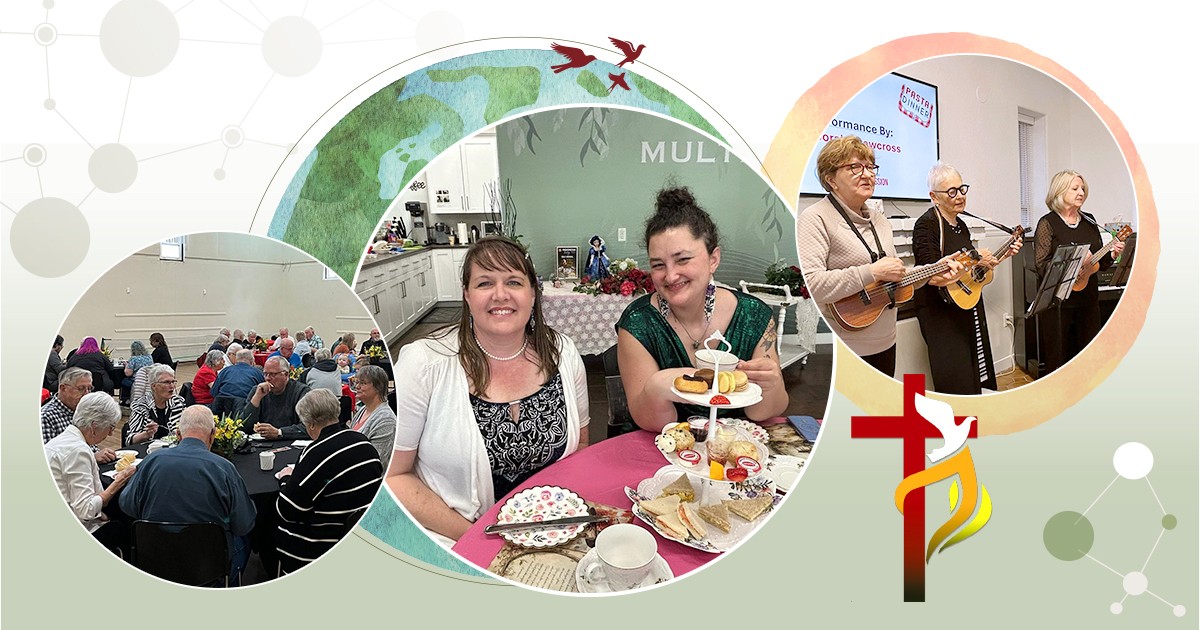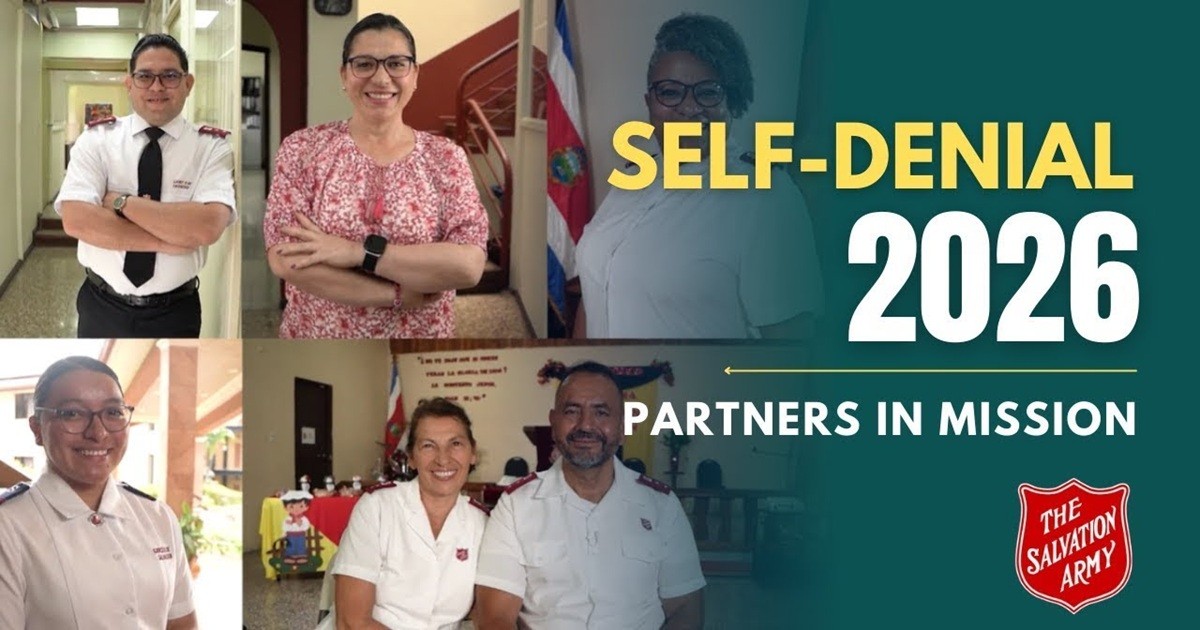Theologians, preachers and bestselling authors have long tried to explain why bad things happen to good people. But there’s a second question that doesn’t get as much attention.
What happens when a good person does something that seems unforgivable?
That’s the question Tom King’s family faced on an early morning last fall as Tom was dying in a hospital room in Akron, Ohio, after he was hit on his motorcycle by a pickup truck.
Would they respond in anger? Or with mercy?
A Matter of Time
A few hours earlier on November 8, 2024, Tom, a 72-year-old U.S. Navy veteran and retiree, had driven off on his beloved motorcycle from a Salvation Army food pantry where he volunteered five days a week. Driving through downtown Akron, he was struck by a 2014 Ford F-150 pickup that ran a stop sign.
The truck driver was Brandon Wellert, a 25-year-old surveyor’s assistant and father of two, who was on his way home from a job site. Brandon was driving down an unfamiliar street when he missed a stop sign. By the time he saw Tom’s motorcycle, it was too late. His truck collided with Tom, who suffered a serious head injury and was taken to a nearby hospital.
Doctors told Tom’s family he would not recover. It was just a matter of time before his heart gave out.
Heartfelt Prayers
At that moment, the family’s thoughts turned to the young man who was to blame. They believe Tom—who had become a kind, soft-hearted man as he grew older—would want to make sure Brandon was OK.
So, the family, who are Christians, began to pray.
“Tom forgave that young man before he hit the curb,” Rick King, Tom’s younger brother, says.
In the following months, Tom’s family pressed law-enforcement officials to show mercy to Brandon, and they showed up in court to advocate on his behalf.
“My view was that this young man already had a life sentence because he’s got to process this for the rest of his life,” Rick says.
On the night of the crash, Christy Boulton, Brandon’s mother, was praying as well. She got a call from her ex-husband letting her know about the accident. Christy says she prayed for Tom’s recovery—part out of concern for him, part out of worry for her son.
“All that night we prayed he’d be OK,” says Christy.
Human Nature
The next morning, they learned Tom had died.
“Mom, I killed a guy,” Christy recalls her son saying when he called with the news. “I’ll never forget that.”
A week after the crash, Brandon was charged with vehicular homicide and learned he could face six months in jail. Because he had been driving a company truck at the time, Brandon also lost his job.
Christy feared Tom’s family would be angry with her son and want to see him punished severely for the accident. A friend of hers had lost a daughter in a car crash, and she recalled how angry she felt at the driver at fault.
“I wanted that guy to pay,” she says. “That’s just our nature.”
Two Families, One Grief
The two families were told by their lawyers and law enforcement officials to stay away from each other while the case made its way through the court. Still, at one hearing, some of Tom’s family spoke to Brandon’s lawyer. They wanted the lawyer to pass on that they were praying for him.
Christy also began to follow Tom’s family on social media, hoping to get a sense of how they might respond. The more she learned about Tom, the worse she felt.
“I was grieving for him,” she says. “And I was scared for my son. It was a weird place.”
In the months following the crash, Tom’s family began processing their grief. Rick spends most of his time these days at his late brother’s house, sorting things out.
“His old work tennis shoes are in the same spot he left them,” Rick says. “He kicked them off when he walked in the back door. And I just kind of walk around them—that’s just me processing and dealing with things. I’ll get there one day.”
Rick ended up being the primary contact with law enforcement after the accident and advocated against Brandon going to prison.
“I couldn’t do anything for Tom, he was already gone,” Rick says. “I felt, why put that young man in jail? Most people in this world have run a stop sign.”
“A Victim of Circumstance”
A U.S. Navy veteran who spent 40 years working for the Coca-Cola Company with a short stint running a restaurant in Florida, Tom marched to the beat of his own drummer. He’d been hard-working and ornery as a younger man but mellowed in later life.
His family attributed the changes in Tom to his newfound faith. About a decade ago, he began reading the Bible regularly and became part of a Salvation Army congregation after his first wife died of cancer. He had been taking care of her and looking for comfort and meaning. Tim King, Tom’s twin brother, also suspected Tom wanted to leave a legacy of faith for his grandkids.
Tom and his first wife had not always seen eye to eye about religion, Tim says, which made his turn to faith complicated.
“He used to have to hide his Bible,” Tim says.
After retiring, Tom had thrown himself into volunteering with The Salvation Army’s food pantry. Working there had brought him a new group of friends and gave purpose to his life.
“He drove the food truck, helped stock shelves, greeted and assisted clients, cleaned, and anything and everything else that was needed,” says Bramwell Applin, area co-ordinator of The Salvation Army’s Summit County Area Services in Akron.
Tom was also an enthusiastic bellringer during the Christmas season, raising funds by manning one of The Salvation Army’s famed red kettles. He was known for wishing everyone he met a blessed day—and meaning it.
“There was never a moment in my short time knowing Tom that I felt like a stranger to him, and I think that experience would ring true for everyone he met,” says Bramwell.
Twin brother Tim said Tom’s sense of compassion shaped how his family responded to the accident.
“Tom was just a victim of circumstance,” Tim says. “There was no need to be vengeful.”
“Forgive Yourself”
Robert Enright, a University of Wisconsin professor who studies forgiveness, says it can take many shapes. Sometimes forgiveness can be immediate, and other times, it’s a long process. He says there is a difference between deciding to forgive someone and then walking what he called the path of forgiveness—where you wish the other person well and see the other person as having worth.
Tom’s death was an injustice, Robert states, and it deserved to have consequences. But there was still room for his family to show mercy.
"What they are trying to do is balance justice with mercy,” he says.
Forgiveness did not make the pain of grief go away, says Carmen Tenney, Tom’s granddaughter. She had just seen him the day before the accident, when he visited for her birthday, bringing a card and praying with her.
“He was going to be the one who walked me down the aisle,” Carmen says. “He is not going to be there. I was angry.”
She says she believed Tom, whom she called “Papa,” would want her to forgive Brandon, but it was not easy.
But as the day of the sentencing approached, Carmen says her mind began to change.
“I know even in my anger that my papa forgave him,” she says. “He would have said, don’t let his life be ruined over an accident.”
On the day of the sentencing, she had a simple message for Brandon—that her grandfather had already forgiven him.
“I told Brandon that I hope that someday soon you could forgive yourself,” she says. “And that’s basically all I could get out without breaking down.”
“Just Keep Going”
Brandon pleaded guilty, and Tom’s relatives asked that he be assigned to do community service for The Salvation Army as a way of carrying on his legacy. The judge gave Brandon 80 hours of service at the Army and suspended his licence. He received no jail time.
“I saw God today,” Christy later wrote on Facebook, recounting the story.
Though she never met him, she’s grateful for Tom’s legacy. “Tom King has blessed my life,” she says.
The night of the accident remains difficult for Brandon, who began seeing a counsellor to help work through how to live with what happened.
“I’m hanging in there,” he says. “It’s still tough to think about. No matter how many times you keep replaying it in your head, it’s never going to make sense.”
He says there was a sense of relief when he heard Tom’s family speak in the courtroom. He was moved by how much they cared for him.
“They said that when they got to the hospital after Mr. King had passed, they prayed for me,” he says. “They were worried about how I was doing.”
Family members say Tom’s legacy continues to inspire them. The last time she saw her papa, Carmen says that he told her about his work with The Salvation Army and how it was going and asked how she and the kids were doing. He played with the kids for a while, “just being goofy,” she says.
Then he gave her the same advice he always did—“You’ve got to just keep going.”
Reprinted from Religion News Service, March 11, 2025
Photo: Viks_jin/stock.Adobe.com










I seen Tom 10 minutes before the accident at the Corp leaving for home. Tom was refreshing person for all of us at the Corp and was living his best life for the lord. I will miss my friend but the legacy of forgiveness will live on.